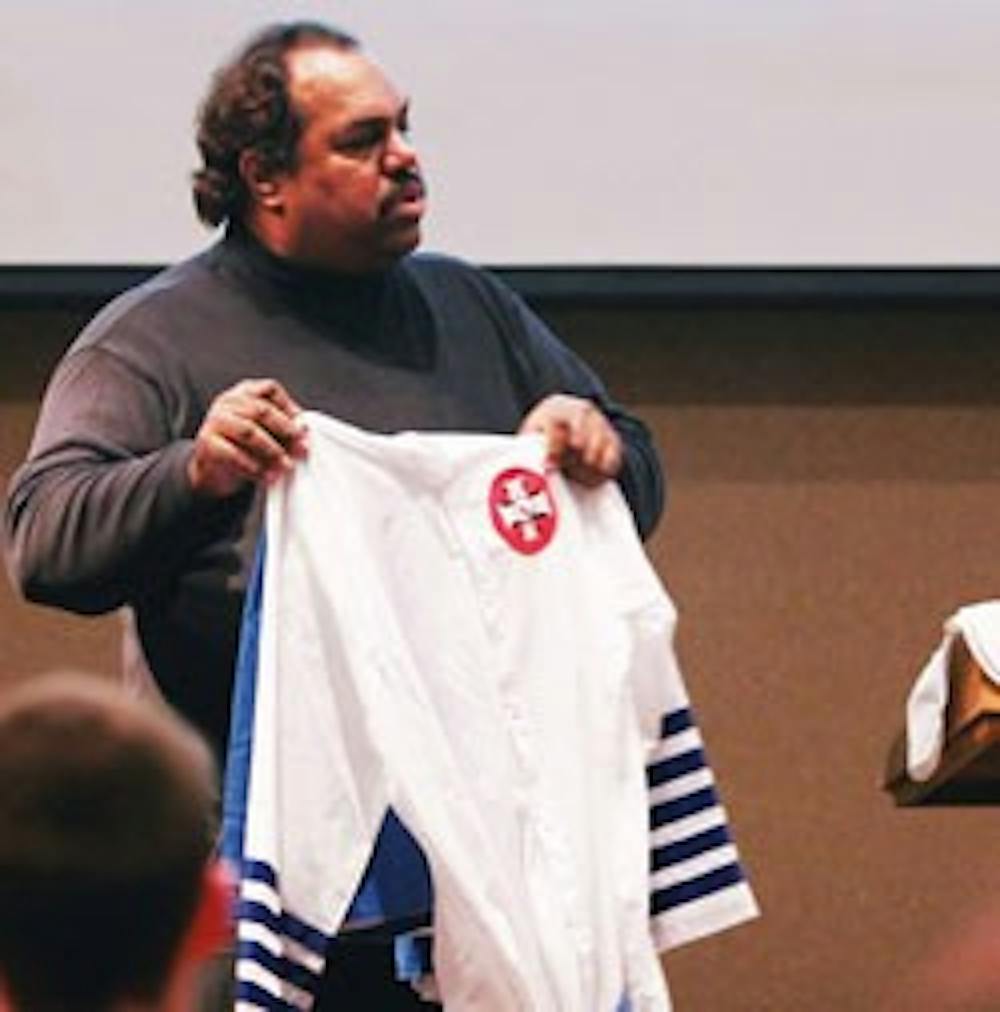by Bryan Gibel
Daily Lobo
Daryl Davis said getting a Ku Klux Klan hood and robe was one of the defining moments of his life.
But Davis is no white supremacist.
He's an African-American who wrote about the KKK based on interviews with its members.
Get content from The Daily Lobo delivered to your inbox
Davis spoke to more than 100 people in the SUB on Wednesday about how he began studying white supremacists.
Davis said he converted more than a dozen members of the KKK from their racist ideology, but that wasn't his intention.
"I never set out to convert anybody. Originally, I set out to get information about them," he said. "But when you sit down with somebody one-on-one, you begin to find things that you have in common, and the more you build on that, the more you break down barriers."
Davis first encountered racism when he was one of two African-American students in his elementary school in Belmont, Mass.
"They pointed at me, and they said, 'We're going to send you back to Africa. ... If you don't go, you'll be exterminated,'" he said.
Davis said the experience didn't inspire him to hate but made him want to understand racism.
"From that day forth, I made it a point to learn everything I could about supremacy," he said.
Davis, a professional piano player, said he first met a member of the KKK in the early '80s while he was playing with his band at a truck stop bar near Frederick, Md.
Davis said he was approached by a man who complimented him on his piano playing.
He said he learned the man was a white supremacist after a lengthy conversation.
"He looked back at me, just as plain as day, and he said, 'I'm a member of the Ku Klux Klan,'" Davis said.
The Klansman gave Davis the contact information for Roger Kelly, then the most powerful member of the KKK in Maryland, he said.
Davis said he set up his first private meeting with Kelly by having his white secretary call and schedule an appointment.
Davis said he and Kelly were on edge during their conversation, but they agreed to meet again.
"He was the head of the Ku Klux Klan, and I was a black guy, but we were sitting at the same table, talking," he said. "We were agreeing and disagreeing, but everything we did, we were civilized about it."
Davis said he continued to speak with Kelly, and they developed a respectful relationship.
Davis said Kelly eventually renounced white supremacy and the KKK.
"A couple years back, Roger Kelly quit the Ku Klux Klan," he said. "When he left the Klan, he gave me his robe and hood. Now, he'll come out with me on my lectures, sometimes to talk."
Davis said Kelly wasn't the only KKK member to give up the robe and hood.
"I've gotten many robes and hoods from Klanspeople from all over the country, just because I sat down and talked to people," he said.
He encouraged students to pursue dialogue as a way to respond to racism and hatred.
"Anybody can do this," he said. "All you have to do is take the time to sit down and talk to people without making any assumptions about them. Then, listen and share your thoughts with them."






